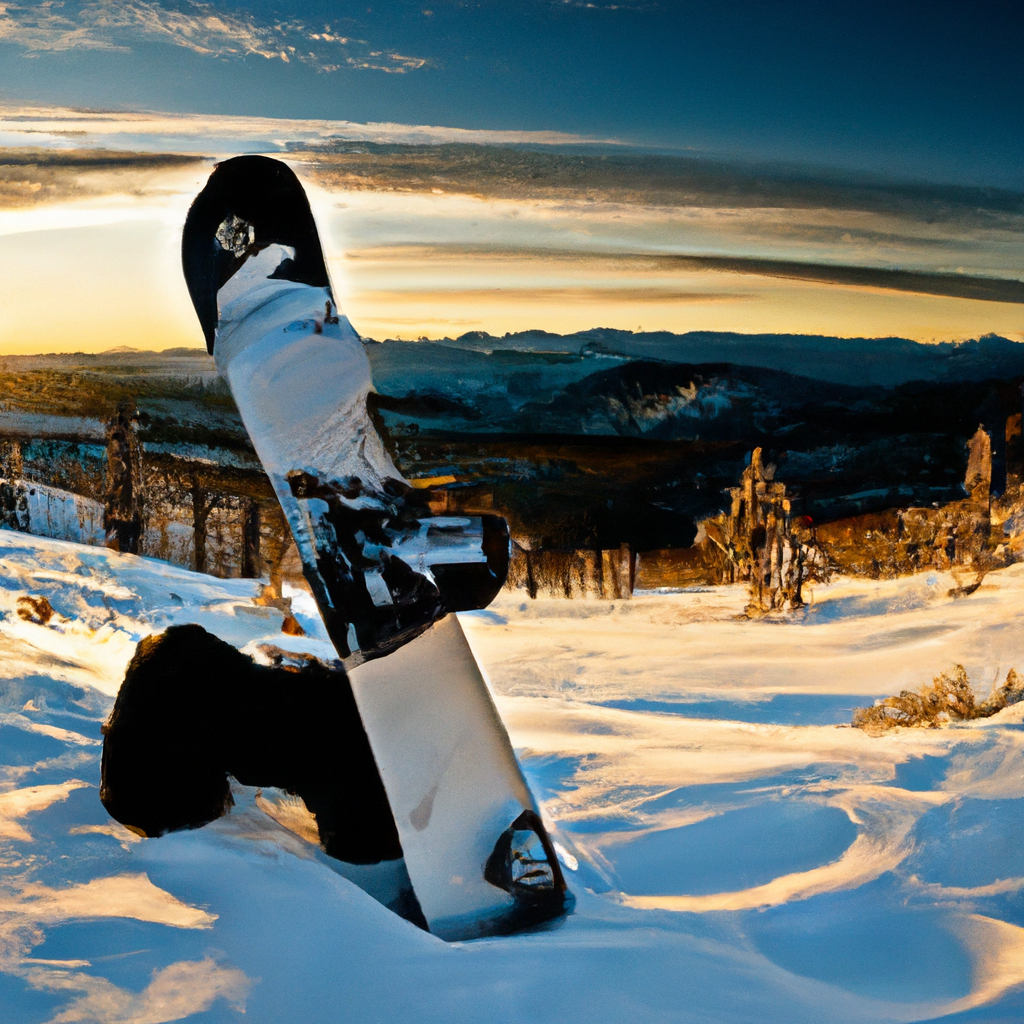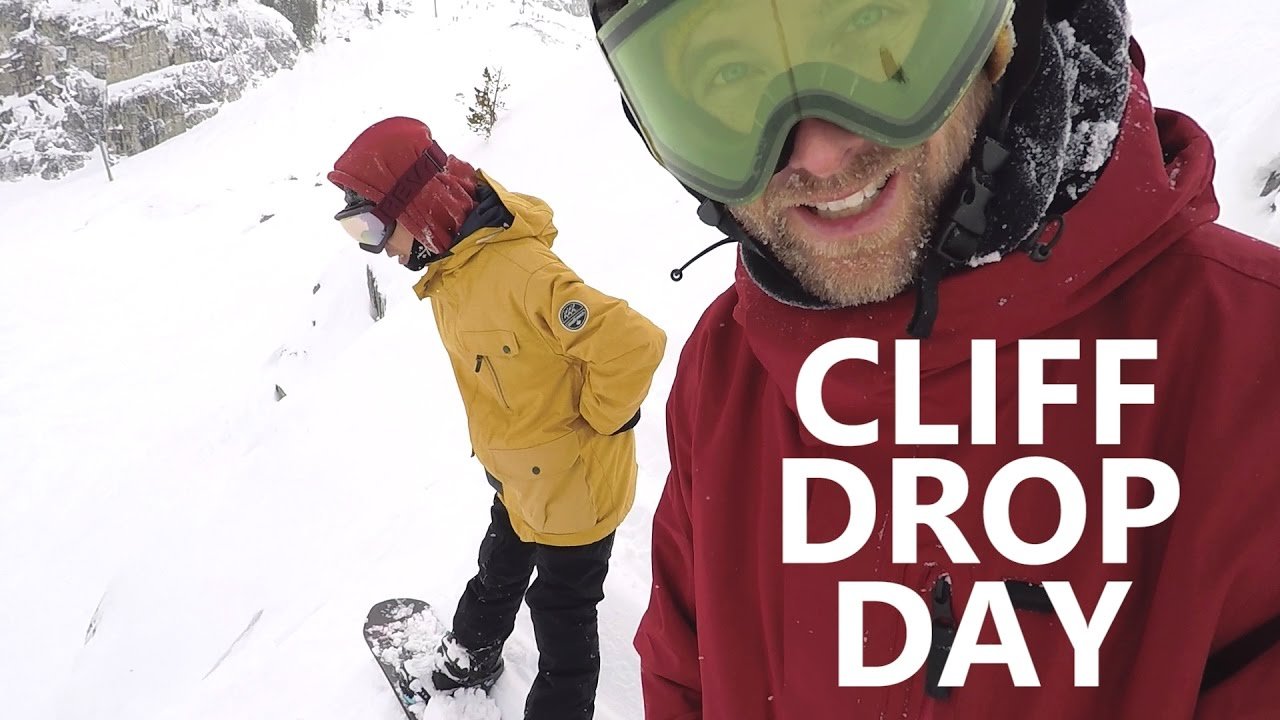
Cliff Drop Day – Snowboarding Fails & Fixes
Today is an exhilarating day for snowboarders in Whistler as they embark on an adventure in search of cliff drops. Accompanied by his friend Shu from Snowboard Dojo Wiz, the video showcases valuable tips for successfully navigating cliff drops. The first tip emphasizes the importance of spotting the landing and ensuring the powder is deep enough, while also avoiding other snowboarders’ landing spots. Additionally, the second tip emphasizes the need to point the snowboard straight a few feet before the cliff to establish balance, and the third tip suggests landing with more weight towards the tail to prevent nose catches and rolling forward. Shu also provides bonus tips on visualizing the landing and throwing a snowball off the cliff’s edge to calculate airtime. Safety is paramount, so wearing a helmet is strongly advised.
In an exciting and informative video, snowboarders demonstrate their attempts at cliff drops, sharing their experiences and offering insights. The engaging footage shows them assessing various drops, discussing their takeoff positions, and analyzing their landings. They discuss the need for speed, the importance of choosing the right size drop, and the significance of listening to one’s body. The video showcases both successful attempts and moments where adjustments and improvements are needed, creating a comprehensive guide for snowboarders interested in conquering cliff drops.
Tips for Dropping Cliffs
Dropping cliffs while snowboarding can be an exhilarating experience, but it’s important to approach it with caution and follow some key tips to ensure a safe and successful landing. Here are some helpful tips that will improve your cliff dropping skills.
Spotting the Landing
The first tip for dropping cliffs is to spot the landing before you take the leap. It’s crucial to make sure that the landing area is deep enough in powder snow to absorb the impact and ensure a smooth landing. Take the time to assess the landing zone from a distance to determine if it meets your safety standards. Additionally, be mindful of other snowboarders who may have already landed in the same spot, as that could affect the quality of the landing.
Giving Yourself Space
Before approaching the cliff, it’s vital to give yourself a few feet of space to set up your approach. Point your snowboard straight and flat towards the cliff’s edge to get balanced and comfortable on your board. This positioning will help you align your body properly for a smooth transition onto the landing.
Weight Distribution on Landing
When dropping off a cliff, it’s crucial to shift your weight towards the tail of your snowboard. This adjustment will prevent you from catching your nose and rolling forward upon landing. By focusing your weight towards the tail, you’ll have better control and stability, reducing the risk of accidents.
Visualizing Your Landing
Visualization is an essential technique for successful cliff dropping. Take a moment to mentally picture yourself jumping off the cliff and sticking the landing. By visualizing your desired outcome, you can build confidence and prepare yourself mentally for the jump. Practice this technique before attempting the drop, and you’ll find it easier to execute.
Throwing a Snowball for Calculation
To estimate the duration of your jump before dropping off the cliff, consider throwing a snowball off the edge and observing its descent. This simple calculation can help you gauge how long you’ll be in the air, allowing for better timing and coordination during the landing. It’s a helpful trick that experienced snowboarders often use to make precise jumps.
Safety Precautions
When engaging in any snowboarding activity, safety should be a top priority. Always wear a helmet to protect your head in case of falls or accidents. Additionally, be aware of your surroundings and any potential hazards in the landing area. By taking necessary safety precautions, you can enjoy cliff dropping with peace of mind.
Cliff Drop Failures
While cliff dropping can be an exciting challenge, it’s important to understand the potential risks and common failures associated with this activity. By knowing what can go wrong, you can avoid making the same mistakes and improve your chances of a successful drop.
Landing on Front Foot
One common failure while cliff dropping is landing on the front foot. When this happens, the weight distribution is imbalanced, causing the rider to lean too far forward. This can result in losing control and falling headfirst. To prevent this, focus on shifting your weight towards the back foot upon landing.
Being Tail-Heavy
On the other end of the spectrum, being too tail-heavy while landing a cliff drop can also lead to failures. When the weight is excessively focused on the back foot, the rider may lose control and fall backward. To avoid this, aim for a balanced weight distribution between the front and back foot during the landing.
Misjudging the Landing
Misjudging the landing is another common mistake made during cliff drops. Underestimating the distance or angle of the landing can lead to unintended consequences. Take the time to properly assess the landing area from different angles to ensure an accurate judgment before taking the leap.
Lack of Commitment
Lack of commitment is a significant factor that can result in cliff drop failures. Hesitating or pulling back at the last moment can cause instability and compromised landings. It’s essential to fully commit to the jump and maintain focus throughout the process.
Going Too Far Forward
Going too far forward during the drop can have serious consequences. This can lead to losing sight of the landing, making it difficult to adjust and maintain control. Stay focused and ensure proper weight distribution to prevent going too far forward.
Incorrect Speed
Having the wrong speed when approaching a cliff drop can also lead to failures. Going too fast or too slow can affect the landing and overall control during the jump. It’s crucial to find the right balance and adjust your speed according to the size and distance of the cliff drop.

Progression and Starting Small
To develop your cliff dropping skills, starting small and progressing gradually is key. Follow these steps to build confidence and improve your abilities.
Choosing the Right Size to Drop
When starting out, it’s important to choose a cliff drop that matches your skill level. Begin with smaller drops and gradually work your way up to larger ones as you gain experience and confidence. By progressively challenging yourself, you can improve your abilities while minimizing the risk of accidents.
Building Confidence and Skill
Building confidence is crucial when it comes to cliff dropping. Practicing smaller jumps and gradually increasing their size will help you gain confidence in your ability to land successfully. Additionally, focus on refining your technique and understanding weight distribution to enhance your overall skill set.
Listening to Your Body
It’s essential to listen to your body when engaging in any snowboarding activity, including cliff dropping. Know your limits and be mindful of any signs of fatigue or discomfort. If you’re not feeling up to the challenge on a particular day, it’s best to wait for another opportunity. Prioritizing your well-being and safety is paramount.
Learning from Others
Observing and learning from experienced snowboarders can significantly enhance your cliff dropping skills. By studying their techniques and approaches, you can gain valuable insights and learn from their experiences.
Observing and Learning from Others
Take the time to observe other snowboarders who are proficient in cliff dropping. Watch their body movements, weight distribution, and overall control during their jumps. By paying attention to their techniques, you can incorporate their methods into your own practice.
Taking Lessons from Experienced Snowboarders
Consider taking lessons from experienced snowboarders or instructors who specialize in cliff dropping. They can provide guidance, feedback, and personalized tips to help you improve your skills. By learning from professionals, you can accelerate your progress and avoid common mistakes.

Conclusion
Cliff dropping in snowboarding can be an exciting and challenging endeavor. By following these tips, understanding the potential failures, and progressively building your skills, you can enhance your ability to conquer cliff drops safely and successfully. Remember to prioritize safety, wear appropriate protective gear, and always listen to your body. With practice, patience, and a commitment to learning, you can become proficient in cliff dropping and enjoy the thrill it offers.
